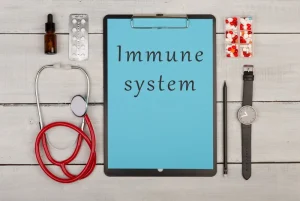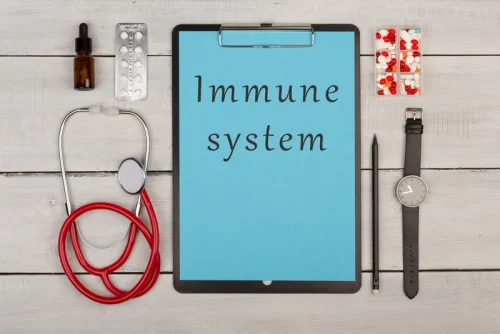
This may lower your risk for the type of strokes caused by blockages in blood vessels. Professional medical treatment will reduce your risks of developing severe health complications or further alcohol dependence. In addition, taking certain thrombolytic medications with ACE inhibitors may increase your chance of developing angioedema, or swelling. Combining these drugs with antiplatelet or anticoagulant drugs may also increase your bleeding chance.
How long should people be on blood thinners?
Some medications work by thinning the blood to keep blood cells from sticking together in the veins and arteries. Others prevent blood clots by increasing the amount of time it takes for blood clots to form. These are known as anticoagulant and antiplatelet drugs, respectively. Blood thinners are essential medications that help prevent blood clots and treat various cardiovascular and circulatory conditions. If a person has certain risk factors for clotting, such as physical trauma, blood thinners can help prevent serious complications. Alcohol is itself a blood thinner, and it also increases the time your blood thinner medication stays in your system.

Can alcohol cause blood clots?
Have you just picked up your Eliquis medication from the drug store? You may lose bone strength if you take heparin for a long time. Another serious, but less common, side effect of warfarin is necrosis.
- Heavy drinking with these drugs increases the risk of stomach bleeding.
- When the dosage isn’t precise enough, it can lead to severe bleeding.
- Call your doctor right away if you have any unexplained bleeding or bruising, nausea or vomiting, blood in your urine or stools, headache, dizziness, or weakness.
- If you’re a regular drinker, you may need to get your medication levels checked more often.
prescription drugs you should not drink alcohol with
Like meat, their vitamin content depends on the animal’s diet, and specific values may vary by region or producer. By clicking “Submit,” you certify that you have provided your legal name and phone number, agree to the terms and conditions and privacy policy, and authorize Addictionresource to contact you. You consent to receive SMS notifications and promotions from Addictionresource. Reported protective alcohol effects may vary depending on the type of beverage, their alcoholic content or non-alcoholic components, and the quantity consumed. You’ll soon start receiving the latest Mayo Clinic health information you requested in your inbox. When you drink, you might get tipsy and lose your balance, too.

Therefore, a person should speak with a healthcare professional about whether it is safe for them to drink alcohol while taking medications. In addition, some direct-acting oral anticoagulants are broken down in the liver for excretion. If you have liver disease or a history of liver disease, tell your healthcare provider. If you choose to drink while taking warfarin, have the combination approved by your doctor first. If you drink alcohol frequently or drink large quantities, or if you have liver disease, let your prescriber know before treatment starts. You may need a dose adjustment in addition to testing of your prothrombin time (PT) or International Normalized Ratio (INR).
How dangerous is it to drink alcohol if I’m on a blood thinner?

Drinking alcohol every day, in fact, can raise your chances of getting atrial fibrillation (AFib), a condition that makes your heart beat really fast and out of rhythm. AFib can lead to blood clots, strokes, heart failure, and other heart conditions. You may have a higher chance of getting clots in the veins in your legs after a hip or knee replacement.

Blood clots can be dangerous because they interfere with blood flow to your vital organs. If you have issues with your heart, you may have a greater chance of developing blood clots and may need to take blood-thinning medications. In general, your healthcare provider is the person who can best explain any possible reasons you shouldn’t take anticoagulant medications. You should ask your healthcare provider if you shouldn’t take anticoagulants because of any other medications you take or conditions you have.
The risk of bleeding complications can be significant, particularly if an injury occurs while the blood is thinned. Additionally, alcohol’s impact on the liver can lead to hematologic complications, https://ecosoberhouse.com/ affecting the body’s ability to manage bleeding and clotting ( source ). Doctors often prescribe anticoagulants to people who have been diagnosed with some form of heart disease.
Can You Drink on Blood Thinners?
- Blood thinners keep a clot where it is and from getting bigger and prevent new clots from forming.
- Like vitamin K, these all contain compounds that can counteract the good things that blood thinners do.
- A 2016 review suggests that significant daily alcohol consumption increases the activity of platelets.
- But, they may have serious side effects, especially if taken with other medications.
Speak with a healthcare professional about the benefits and risks. When it comes to the health of your blood vessels, have a conversation with your blood thinners and alcohol doctor. If you do drink alcohol while on blood thinners, do so in moderation. For men under age 65, up to two drinks a day is considered moderate.
- Medical staff can also help resuscitate anyone who’s experienced extreme blood loss.
- These activities increase your chance of getting an injury that causes you to bleed.
- Ask about foods and other medications — including drugs you buy without a prescription and herbal supplements — that can interfere with how the blood thinner works.
- Alcohol might also slow down the rate at which your body breaks down and removes the blood-thinning drug.
How does alcohol consumption affect my high cholesterol or risk of other cardiovascular issues?
No matter where you are in your recovery journey, our team will be there every step of the way. Both anticoagulant and anti-platelet drugs are used to prevent a blood clot from forming. HIT has a very high rate of causing severe or permanent complications. Because of that, platelet level monitoring is very important for anyone who’s receiving unfractionated or low-molecular-weight heparin.


